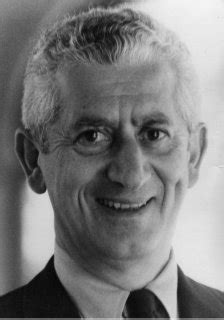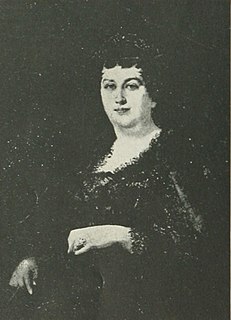A Quote by Charles A. Beard
Education from the lowest to the highest form must have for its object the training of the individual so that, in seeking the fullest satisfaction of his own nature, he will harmoniously perform his function as a member of a corporate society.
Related Quotes
All that is limited by form, semblance, sound, color is called object. Among them all, man alone is more than an object. Though, like objects, he has form and semblance, He is not limited to form. He is more. He can attain to formlessness. When he is beyond form and semblance, beyond "this" and "that," where is the comparison with another object? Where is the conflict? What can stand in his way? He will rest in his eternal place which is no-place. He will be hidden in his own unfathomable secret. His nature sinks to its root in the One. His vitality, his power hide in secret Tao.
The child begins life as a pleasure-seeking animal; his infantile personality is organized around his own appetites and his own body. In the course of his rearing the goal of exclusive pleasure seeking must be modified drastically, the fundamental urges must be subject to the dictates of conscience and society, urges must be capable of postponement and in some instances of renunciation completely.
How beautifully is it ordered, that as many thousands work for one, so must every individual bring his labor to make the whole! The highest is not to despise the lowest, nor the lowest to envy the highest; each must live in all and by all. Who will not work neither shall he eat. So God has ordered that men, being in need of each other, should learn to love each other, and bear each other's burdens.
We live in such a corporate world where everyone is passing the buck, it seems to me. Therefore I like stories where the individual takes responsibility for BEING the individual, and not just for himself, but for his comrades, his society and ultimately for his country. Ultimately, we can all learn a lesson from that and not be browbeaten by the corporate world which is taking over.
The great object of Education should be commensurate with the object of life. It should be a moral one; to teach self-trust: to inspire the youthful man with an interest in himself; with a curiosity touching his own nature; to acquaint him with the resources of his mind, and to teach him that there is all his strength.
Individual versus group selection results in a mix of altruism and selfishness, of virtue and sin, among the members of a society. If one colony member devotes its life to service over marriage, the individual is of benefit to the society, even though it does not have personal offspring. A soldier going into battle will benefit his country, but he runs a higher risk of death than one who does not. An altruist benefits the group, but a layabout or coward who saves his own energy and reduces his bodily risk passes the resulting social cost to others.
Whenever the truth is uncovered, the artist will always cling with rapt gaze to what still remains covering even after such uncovering; but the theoretical man enjoys and finds satisfaction in the discarded covering and finds the highest object of his pleasure in the process of an ever happy uncovering that succeeds through his own efforts.
A society that robs an individual of the product of his effort, or enslaves him, or attempts to limit the freedom of his mind, or compels him to act against his own rational judgment-a society that sets up a conflict between its edicts and the requirements of man’s nature—is not, strictly speaking, a society, but a mob held together by institutionalized gang-rule.
[T]rue socialism must be voluntary - not coerced. Even in the most complete system of society we can conceive the individual must still have rights and property. He must appropriate food to sustain his life. He must wear clothes which are his. He must have his private and exclusive apartment, and must have the right to be in some place on God's earth from which he cannot be evicted by landlord of society.
Since the social victim has been oppressed by society, he comes to feel that his individual life will be improved more by changes in society than by his own initiative. Without realizing it, he makes society rather than himself the agent of change. The power he finds in his victimization may lead him to collective action against society, but it also encourages passivity within the sphere of his personal life.
It is possible that an individual may be successful, largely because he conserves all his powers for individual achievement and does not put any of his energy into the training which will give him the ability to act with others. The individual acts promptly, and we are dazzled by his success while only dimly conscious of the inadequacy of his code.
The principles are important. First, the interest of the state or society counts for everything, that of the individual for nothing. Second, the only difference between men and women is one of physical function- one begets, the other bears children. Apart from that, they both can and should perform the same functions - though men on a whole, perform them better and should receive the same education to enable them to do so; for in this way society will get the best value from both.
While [Plato] affirmed with emphasis that the place of the individual in society should not be determined by birth or wealth or any conventional status, but by his own nature as discovered in the process of education, he had no perception of the uniqueness of individuals. For him they fall by nature into classes, and into a very small number of classes at that.








































